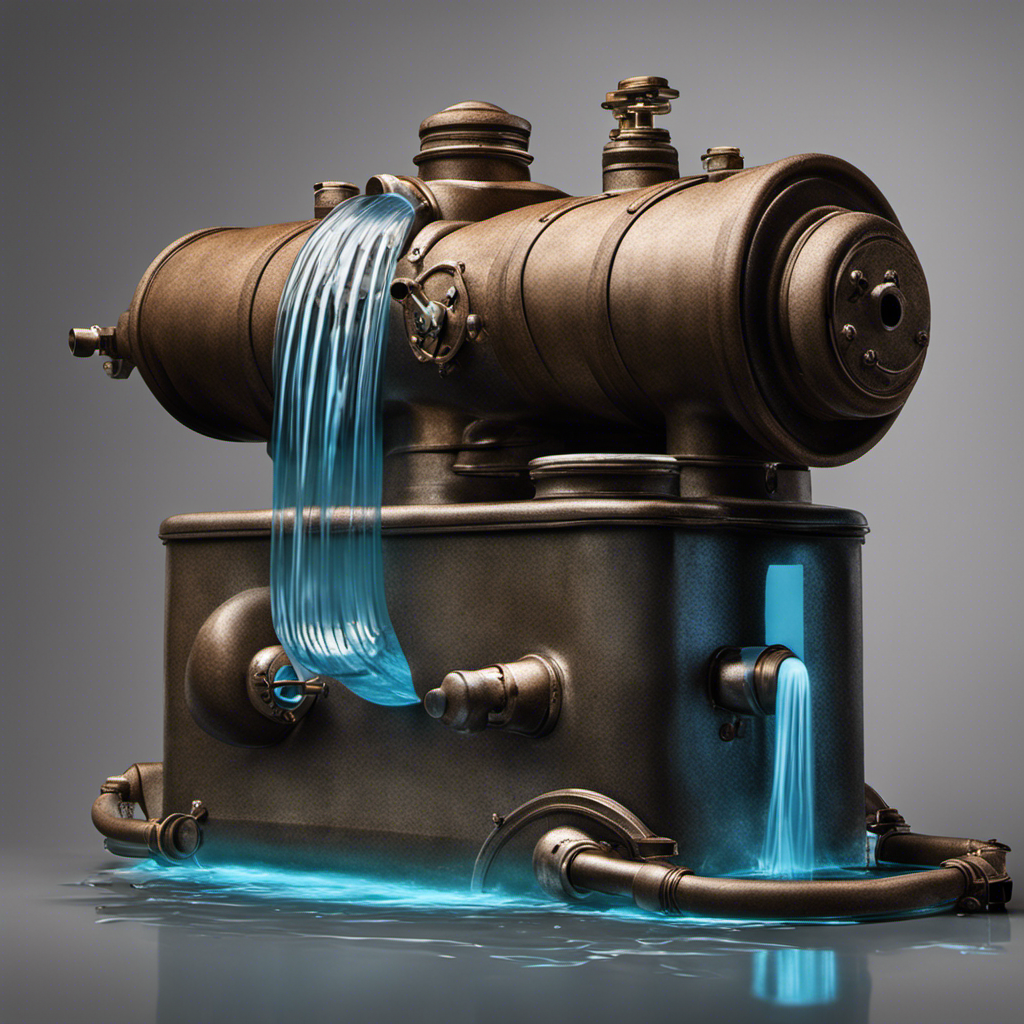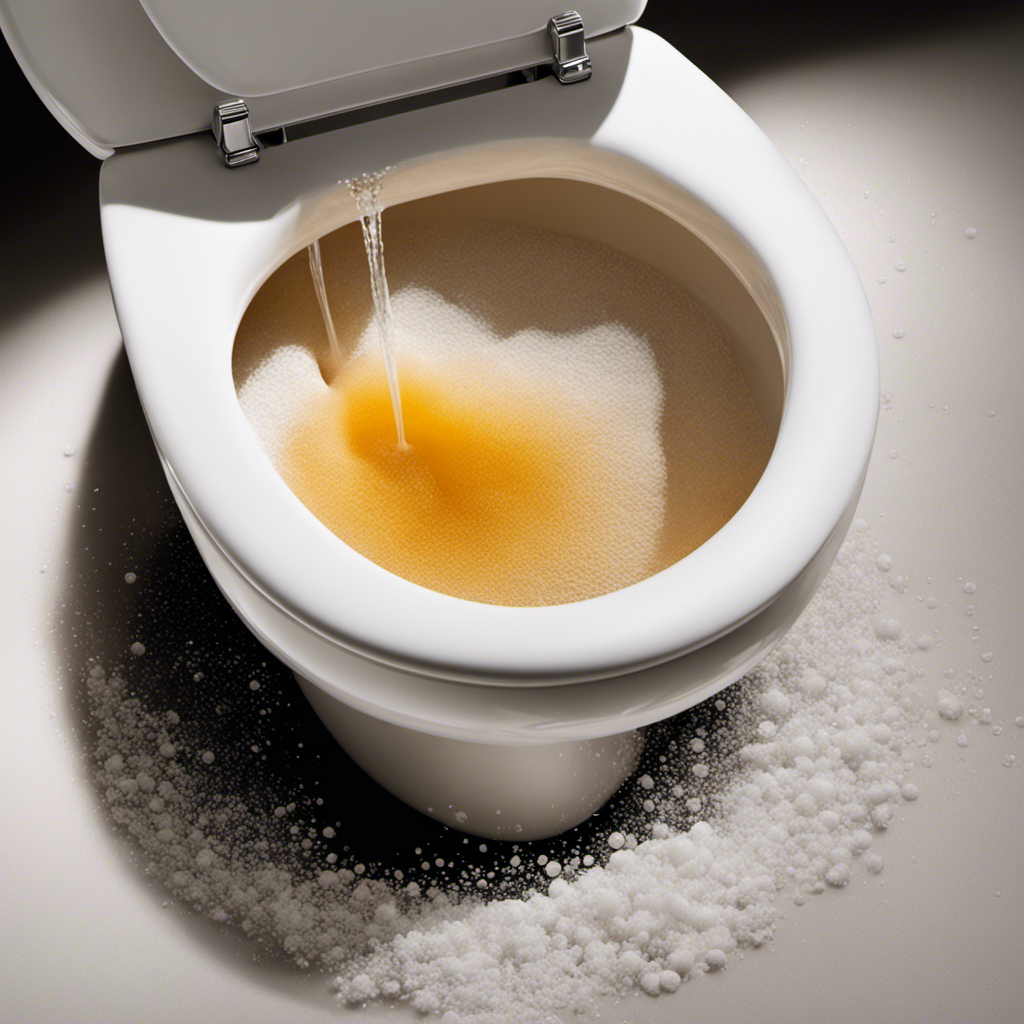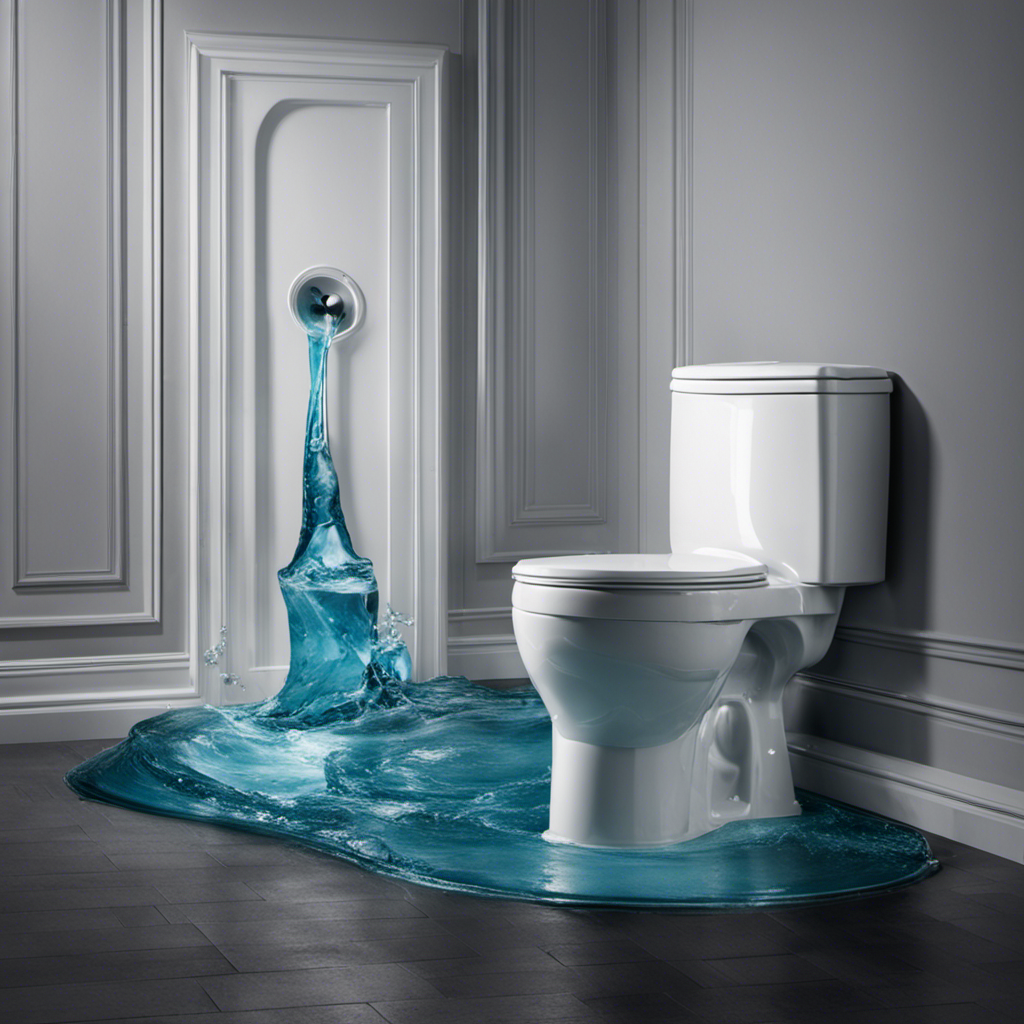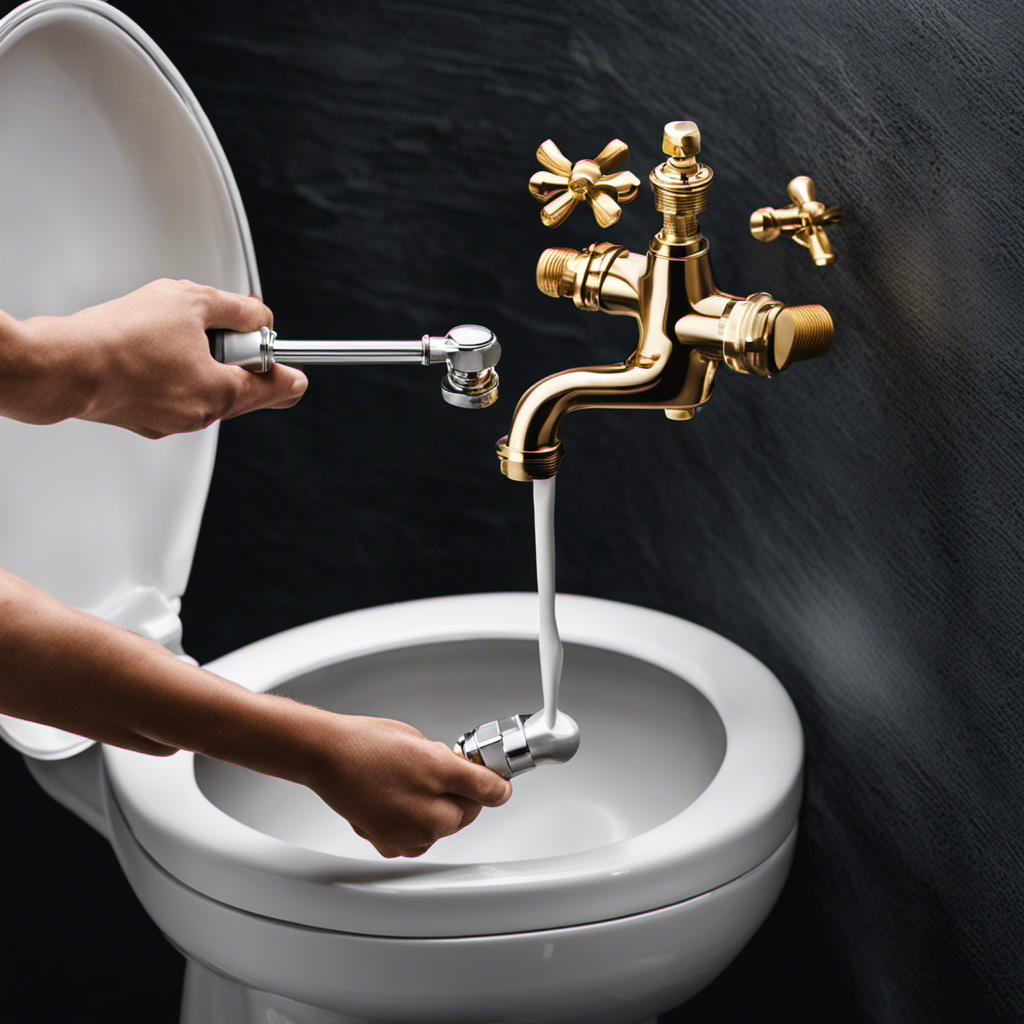All of us have enjoyed the ease that comes with using disposable wipes. They offer the allure of achieving cleanliness and freshness with just one swipe. However, the question arises: Is it safe to flush these wipes down the toilet?
In this article, we delve into the rise of disposable wipes, the claims of flushability, and the potential risks they pose to our plumbing systems. We will also explore the environmental consequences and the challenges faced by municipal sewage treatment facilities.
Join us as we seek to make informed choices and understand the impact of our actions.
Key Takeaways
- Disposable wipes do not disintegrate easily when flushed and can cause clogging and blockages in plumbing systems.
- Proper disposal of disposable wipes is necessary to prevent costly repairs and pipe replacement.
- Reusable cloth wipes, bidets, and wetting regular toilet paper with water are alternatives to using disposable wipes.
- Flushing disposable wipes can have serious environmental consequences, including water pollution and damage to wastewater treatment plants.
The Rise of Disposable Wipes
Disposable wipes have become increasingly popular in recent years, causing concerns about their impact on plumbing systems and the environment. The rise of disposable wipes can be attributed to changes in consumer behavior.
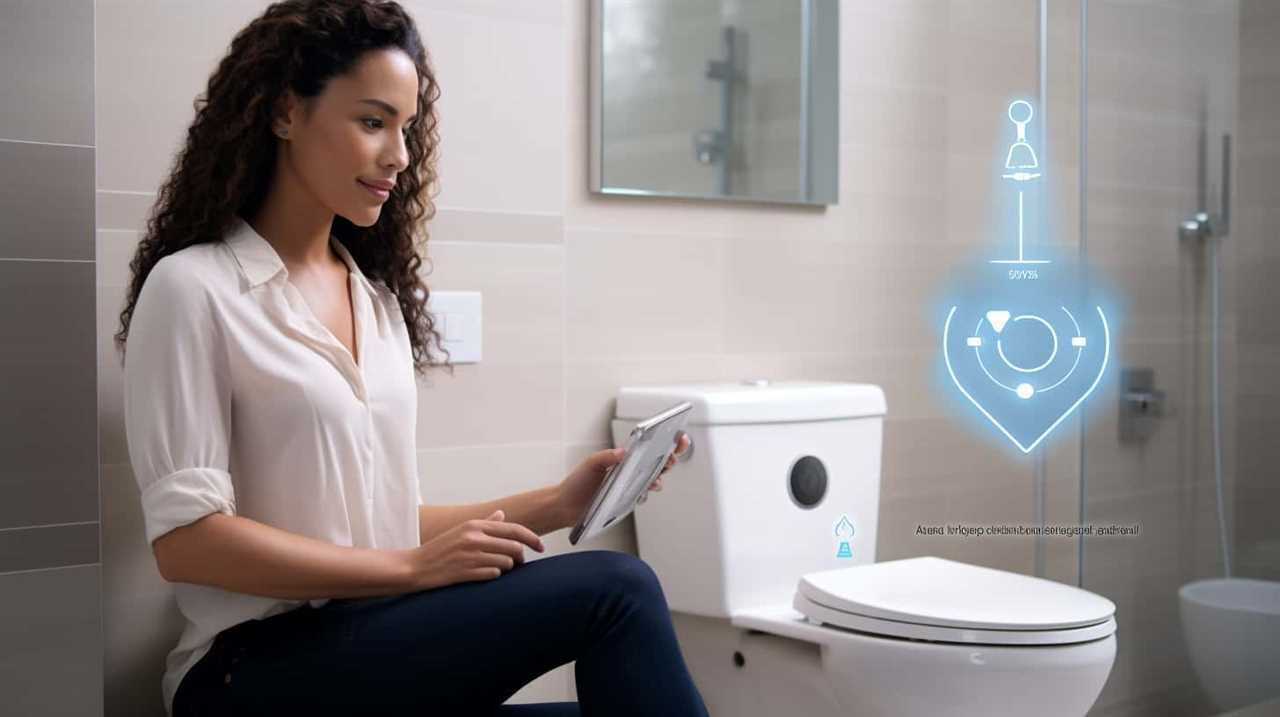
In today’s fast-paced society, convenience plays a significant role in purchasing decisions. Disposable wipes offer a quick and easy solution for various cleaning tasks, whether it’s wiping down surfaces or removing makeup. Additionally, the marketing strategies employed by manufacturers have successfully created a perception of effectiveness and hygiene associated with these products. As a result, consumers are more inclined to choose disposable wipes over traditional alternatives.
However, this shift in consumer behavior has led to unintended consequences. The increased use of disposable wipes has led to clogged pipes and sewer backups, posing a significant problem for plumbing systems. Moreover, the environmental impact of disposable wipes is a growing concern, as they’re often made from non-biodegradable materials, contributing to pollution and landfill waste.
Addressing these issues requires a combination of consumer education, responsible disposal practices, and the development of more sustainable alternatives.
Understanding Flushability Claims
When it comes to flushability claims, it’s important to understand the guidelines set by manufacturers to determine if disposable wipes are safe to flush. Flushability testing is conducted to assess the ability of these wipes to disintegrate and break apart when flushed down the toilet. This testing evaluates factors such as the rate of disintegration, fiber content, and impact on sewer systems.
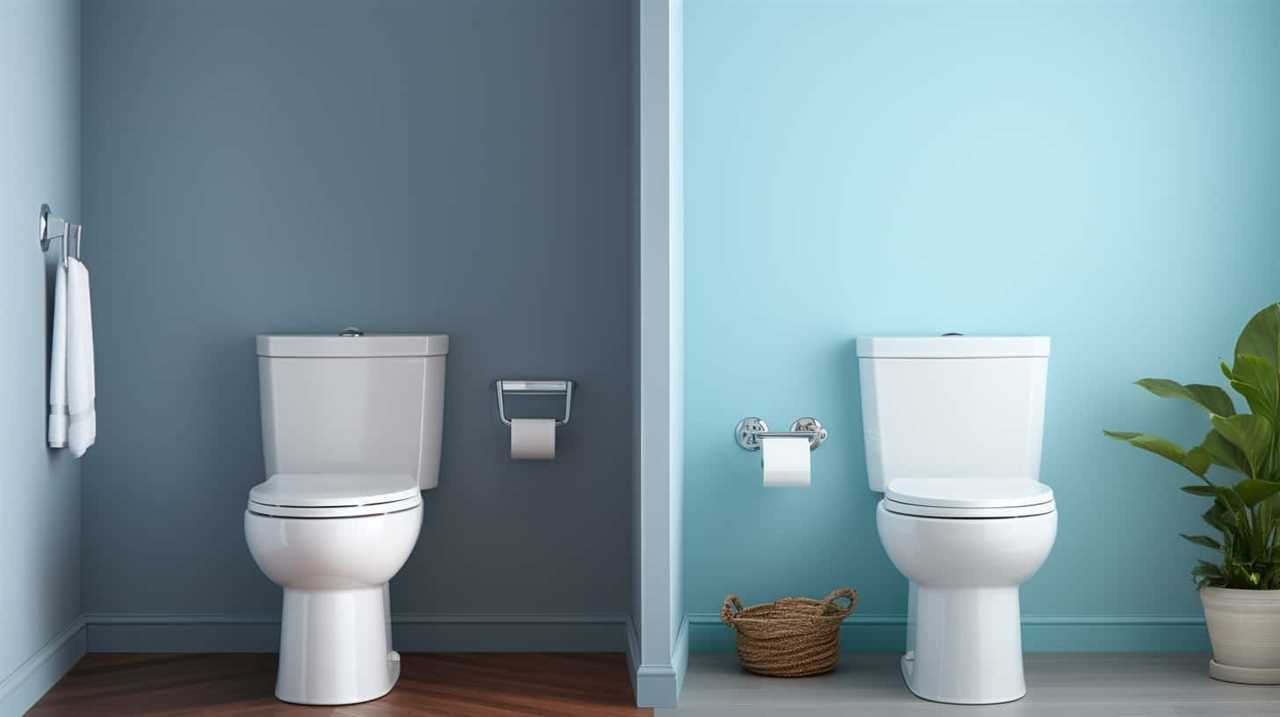
However, it’s crucial to note that flushability claims are often based on ideal conditions and may not reflect real-world consumer behavior. Consumer behavior plays a significant role in determining whether disposable wipes are truly safe to flush. Many individuals may flush wipes despite packaging instructions, leading to clogging and blockages in sewer systems.
Therefore, it’s essential for manufacturers and consumers to work together to ensure proper disposal methods and prevent potential environmental and plumbing issues.
The Impact on Plumbing Systems
Flushing disposable wipes can have detrimental effects on our plumbing systems. While these wipes may claim to be flushable, they often don’t break down as easily as toilet paper. As a result, they can clog pipes and cause blockages in our plumbing systems.
Plumbing maintenance is crucial to prevent these issues from occurring. Regular inspections and cleaning can help identify any potential problems and address them before they become major headaches. However, if disposable wipes are consistently flushed down the toilet, the long-term consequences can be significant.

These wipes can accumulate in the pipes, leading to costly repairs and even the need for pipe replacement. It’s important to educate ourselves and our communities about the proper disposal of disposable wipes to prevent plumbing problems in the future.
Risks of Clogged Toilets and Sewer Blockages
When it comes to flushing disposable wipes, there are significant risks of clogged toilets and sewer blockages that can’t be ignored. These wipes don’t break down like toilet paper and can easily get tangled in pipes and sewer systems, leading to costly and inconvenient blockages.
This poses a serious risk to both homeowners and municipal sewage systems, making it crucial to understand the potential consequences before flushing these wipes.
Environmental Impact of Flushing
The environmental impact of flushing disposable wipes includes the risks of clogged toilets and sewer blockages. One of the main challenges is the biodegradability of these wipes. Unlike toilet paper, disposable wipes are often made from synthetic materials that don’t break down easily in water. This can lead to accumulation in pipes and sewer systems, causing blockages and backups.
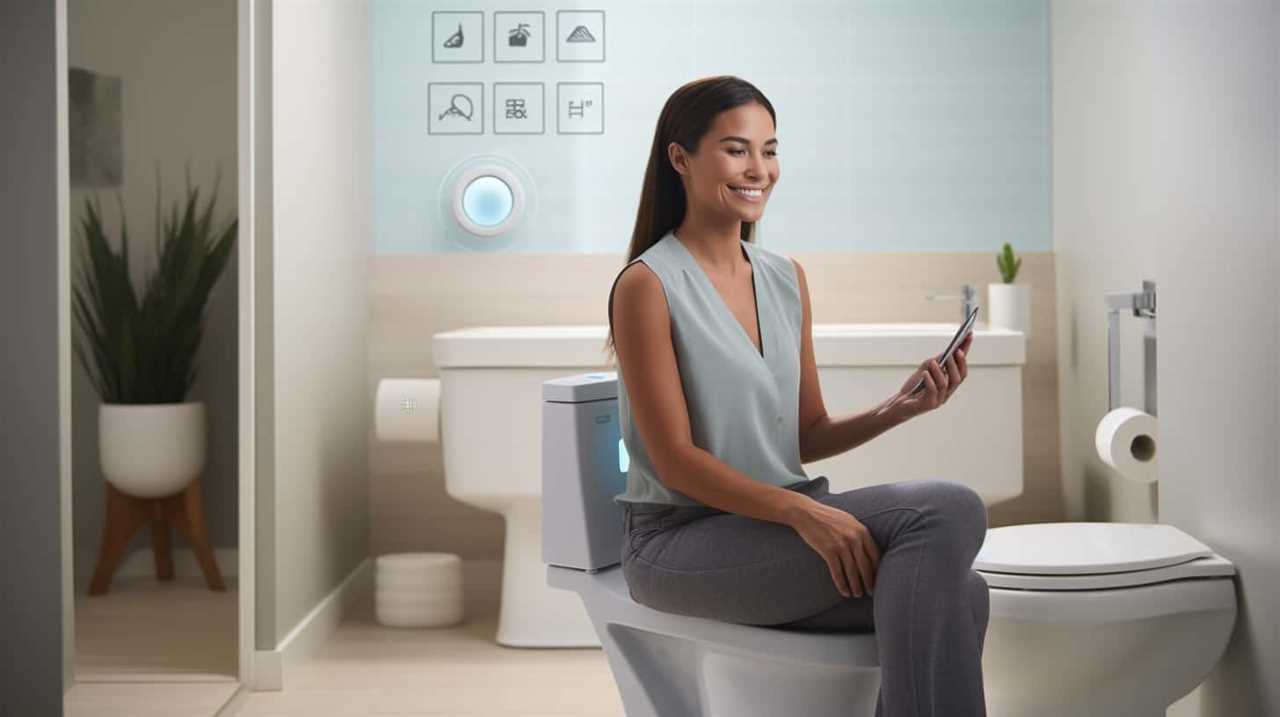
Additionally, consumer behavior plays a significant role in exacerbating this issue. Many people mistakenly believe that flushing wipes is a convenient and safe option, unaware of the potential consequences. As a result, the improper disposal of these wipes contributes to the environmental impact and poses a threat to the proper functioning of sewage systems.
It’s crucial to educate consumers about the dangers of flushing wipes to mitigate these risks.
Alternatives to Disposable Wipes
To address the risks of clogged toilets and sewer blockages associated with flushing disposable wipes, we can explore alternatives that offer a safer and more environmentally friendly option. Here are four sustainable alternatives to disposable wipes:
- Reusable Cloth Wipes: These are washable and can be used multiple times, reducing waste and the risk of clogs.
- Bidets: Installing a bidet in your bathroom can eliminate the need for wipes altogether, providing a more hygienic and eco-friendly solution.
- Wetting Toilet Paper: Simply wetting regular toilet paper with water can achieve a similar cleansing effect without the risk of clogging pipes.
- Eco-Friendly Flushable Wipes: If you still prefer the convenience of disposable wipes, look for brands that are specifically designed to be biodegradable and safe for flushing.
Environmental Consequences of Flushing Wipes
Although disposable wipes may seem convenient, flushing them can have serious environmental consequences.
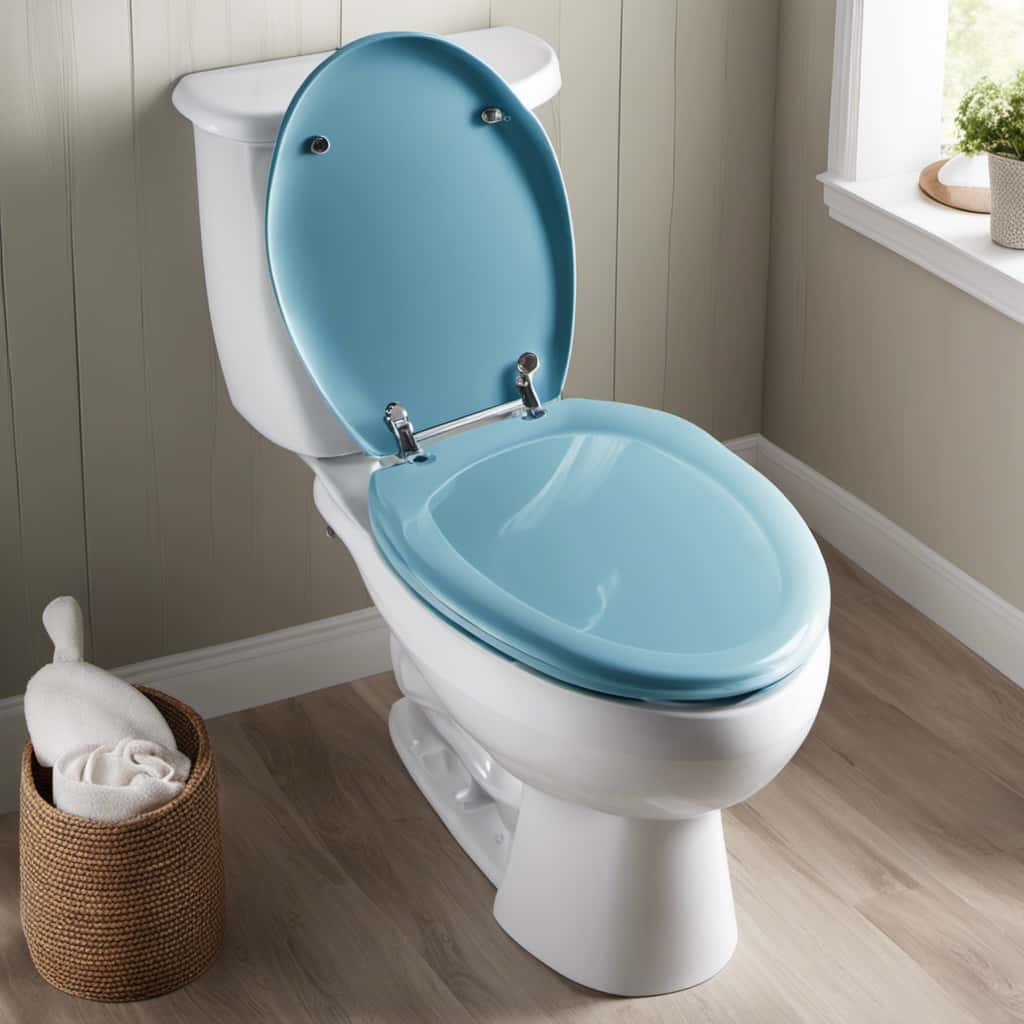
Many people assume that flushable wipes are safe to flush down the toilet because they’re labeled as such. However, this isn’t entirely true. Flushable wipes don’t break down as easily as toilet paper, and they can clog pipes and sewer systems.
When flushed, these wipes can end up in wastewater treatment plants, where they can cause significant damage. The filters in these treatment plants aren’t designed to effectively remove wipes, resulting in clogs and equipment malfunctions.
Additionally, some wipes contain non-biodegradable materials that can contribute to pollution in water bodies.
It’s important to dispose of wipes properly in the trash to prevent these environmental consequences.

Alternatives to Flushing Disposable Wipes
We can avoid the environmental consequences of flushing disposable wipes by opting for alternative methods of disposal. Here are four sustainable alternatives and proper disposal methods to consider:
- Trash Bin: Dispose of used wipes in a designated trash bin. This ensures that they end up in a landfill, where they can break down naturally over time.
- Composting: If the wipes are made from biodegradable materials, consider composting them. This allows the wipes to decompose and turn into nutrient-rich soil.
- Reusable Cloth Wipes: Use reusable cloth wipes instead of disposable ones. These can be washed and reused, reducing waste and saving money in the long run.
- Flushable Wipes: If you prefer using wipes, choose flushable wipes that are specifically designed to break down easily in water. However, it’s important to remember that even flushable wipes can still cause issues in sewer systems.
The Dangers of Flushable Wipes
When it comes to flushable wipes, there are several dangers that need to be addressed.
Firstly, these wipes can cause sewer blockages and backups, leading to costly repairs and inconvenience for homeowners and municipalities.
Secondly, the environmental impact and pollution caused by flushable wipes can’t be ignored, as they don’t break down easily and can harm aquatic life.
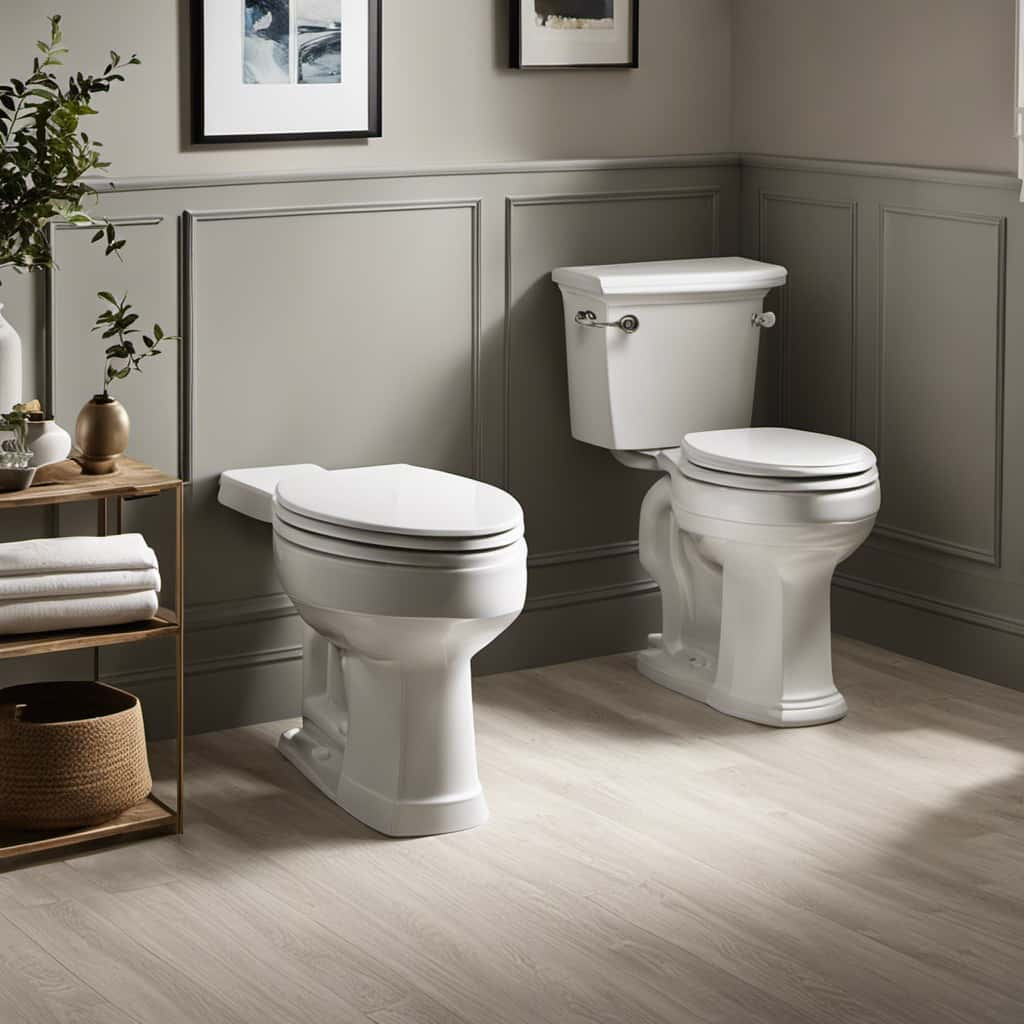
Lastly, the ‘flushable’ labeling of these wipes can be misleading, leading people to believe they’re safe to flush when in reality they can cause significant problems in the sewer system.
Sewer Blockages and Backups
To understand the dangers of flushable wipes, it’s important to recognize the potential for sewer blockages and backups. These blockages and backups can have serious consequences for public health and the environment.
Here are four reasons why they pose a significant risk:
- Increased risk of sewage backups: Flushable wipes can clog sewer pipes and lead to sewage backups in homes, businesses, and public areas. This can result in costly repairs and cleanup efforts.
- Contamination of water sources: When sewage backs up, it can contaminate nearby water sources, such as rivers and lakes. This poses a threat to aquatic life and can impact the quality of drinking water.
- Spread of disease-causing pathogens: Sewage backups can harbor harmful bacteria and viruses, increasing the risk of waterborne diseases. This can pose a significant threat to public health.
- Environmental damage: Sewage backups can also harm the environment by polluting ecosystems and damaging delicate ecosystems.
Understanding these risks highlights the importance of properly disposing of flushable wipes, rather than flushing them down the toilet. By doing so, we can protect our sewer systems, public health, and the environment.

Environmental Impact and Pollution
An alarming amount of environmental impact and pollution is caused by the improper disposal of flushable wipes. Despite their claims of being flushable, these wipes pose a significant threat to our ecosystems and waterways.
When flushed, they can clog sewer systems and contribute to sewer overflows, leading to the release of untreated wastewater into our environment. The materials used in these wipes, such as synthetic fibers and plastic, don’t break down easily and can persist in the environment for years. This pollution can harm aquatic life and damage fragile ecosystems.
To prevent further pollution, it’s crucial to educate the public about proper disposal methods and the importance of wastewater management. Additionally, promoting the use of alternatives, like biodegradable wipes or reusable cloths, can help mitigate the environmental impact caused by disposable wipes.
Misleading "Flushable" Labeling
One of the dangers of flushable wipes is the misleading labeling that claims they can be safely flushed down the toilet. This misleading marketing tactic has led to consumer confusion and has contributed to the widespread use of flushable wipes, which have proven to be anything but flushable.
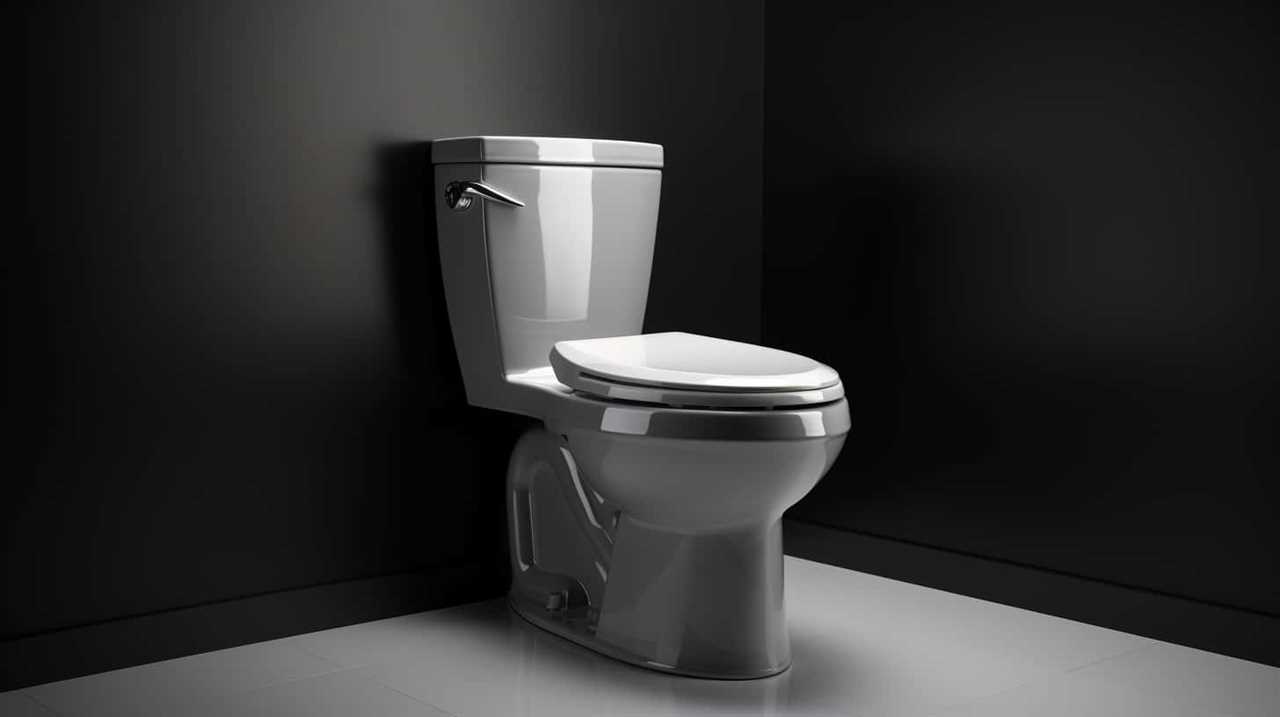
Here are four reasons why the labeling of flushable wipes is misleading and deceptive:
- Poor disintegration: Despite being labeled as flushable, these wipes don’t break down properly in the sewer system, causing blockages and clogs.
- Environmental impact: Flushable wipes, when improperly disposed of, can end up in water bodies, causing pollution and harm to aquatic life.
- Increased maintenance costs: Municipalities and wastewater treatment plants are burdened with the additional costs of repairing damages caused by these non-disintegrating wipes.
- Risk to plumbing systems: Flushable wipes can accumulate in pipes, leading to costly repairs and plumbing emergencies.
The misleading labeling of flushable wipes has misled consumers into thinking that they’re safe for flushing, when in reality, they pose significant risks to our plumbing systems and the environment.
Moving forward, it’s important to examine the biodegradability and breakdown processes of these wipes to fully understand their impact.
Biodegradability and Breakdown Processes
Disposable wipes undergo biodegradation and breakdown processes after being flushed.
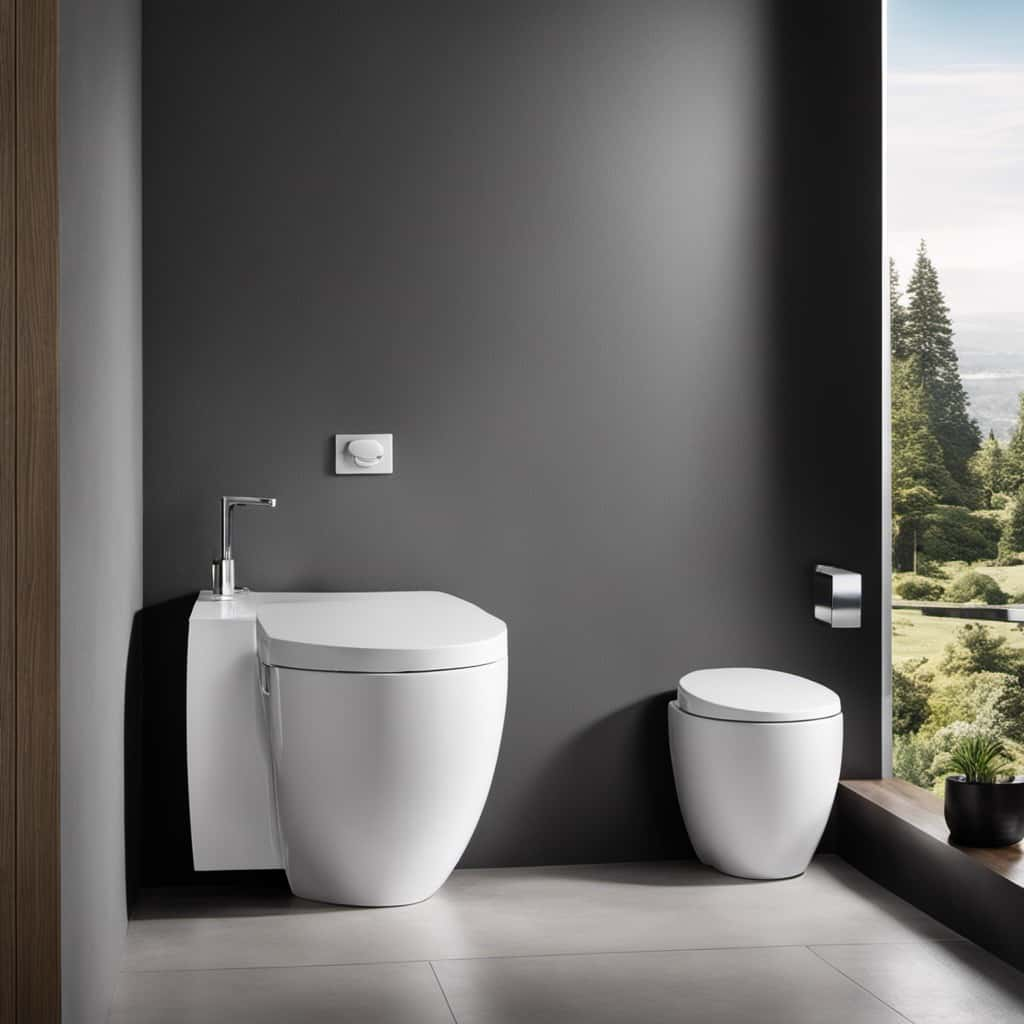
Biodegradability research and breakdown technology evaluation play crucial roles in determining the safety and environmental impact of these wipes.
Biodegradability refers to the ability of a material to be broken down by natural processes, such as bacteria or enzymes, into simpler substances.
Breakdown technology evaluation involves assessing the effectiveness of different methods, such as aerobic or anaerobic digestion, in breaking down the wipes.
This research helps to determine whether the wipes can be safely flushed without causing harm to the environment or clogging sewage systems.

Understanding the biodegradability and breakdown processes of disposable wipes is essential in addressing the challenges faced by municipal sewage treatment facilities in effectively managing and treating the increasing amount of wastewater containing these wipes.
Municipal Sewage Treatment Challenges
As wastewater treatment facilities face an increasing influx of these non-flushable wipes, we encounter numerous challenges in effectively managing and treating municipal sewage. The impact of these challenges extends beyond the issue of biodegradability and breakdown processes.
Here are four key challenges that municipal sewage treatment faces:
- Strained infrastructure: The excessive use of disposable wipes strains the existing infrastructure, leading to clogged pipes and increased maintenance costs.
- Increased operational costs: Municipalities must invest in specialized equipment and technologies to remove and dispose of these wipes properly, resulting in higher operational costs.
- Environmental impact: Improper disposal of non-flushable wipes can lead to pollution of water bodies, harming aquatic ecosystems and endangering public health.
- Limited funding: Municipalities often struggle with limited funding for wastewater management, making it difficult to address the challenges posed by these wipes effectively.
To tackle these challenges, it’s crucial for municipalities to prioritize proper waste management practices and secure adequate funding for wastewater treatment facilities.

Consumer Awareness and Education
To address the challenges posed by the increasing use of non-flushable wipes, we, as consumers, need to prioritize awareness and education regarding proper disposal methods. Consumer behavior plays a crucial role in the safe disposal of these wipes.
It’s essential for consumers to understand that flushing non-flushable wipes can lead to clogging in sewage systems, which can be costly and time-consuming to fix. Therefore, it’s imperative that consumers take the time to educate themselves on the proper disposal methods for these wipes.
Product labeling also plays a significant role in consumer awareness. Clear and accurate labeling can help consumers identify which wipes are flushable and which are not.
Industry Regulations and Standards
When it comes to the safety of disposable wipes, it’s important to consider industry regulations and standards. Regulatory compliance and enforcement play a crucial role in ensuring that manufacturers follow guidelines to protect consumers and the environment.
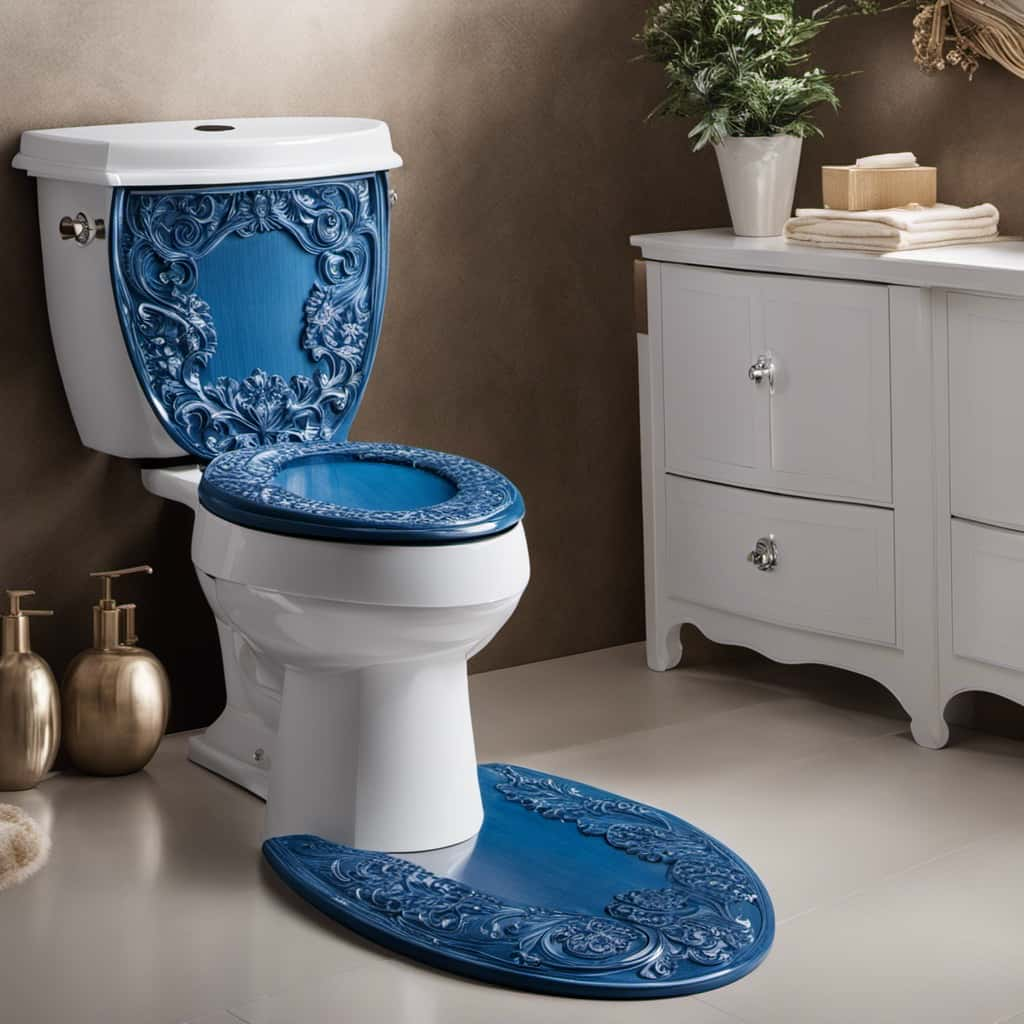
Additionally, understanding the safety and environmental impact of these wipes is essential to making informed decisions. Standardized testing can help establish consistent criteria for evaluating the flushability and biodegradability of these products.
Regulatory Compliance and Enforcement
The regulatory compliance and enforcement of industry regulations and standards are essential in ensuring the safety and effectiveness of disposable wipes. Here are four reasons why regulatory compliance and consumer education are crucial:
- Protection of public health: Regulatory compliance ensures that the manufacturing and disposal processes of disposable wipes meet strict safety standards, minimizing the risk of harmful contaminants entering our water systems.
- Environmental preservation: Proper enforcement of industry regulations prevents the flushing of non-flushable wipes, reducing the negative impact on our ecosystems and wastewater treatment facilities.
- Product consistency: By adhering to industry regulations, manufacturers guarantee that disposable wipes meet specific quality standards, providing consumers with reliable and effective products.
- Transparent information: Consumer education initiatives aim to inform the public about proper usage and disposal methods, empowering them to make informed choices and protect the environment.
Safety and Environmental Impact
At present, we’re witnessing heightened concerns regarding the safety and environmental impact of disposable wipes due to industry regulations and standards.
Safety concerns arise from the fact that many disposable wipes aren’t designed to be flushed down the toilet, yet they often end up in our sewer systems. This can lead to clogs and blockages, posing potential health risks and costly repairs. Additionally, improperly disposed wipes can contribute to water pollution and harm aquatic life.
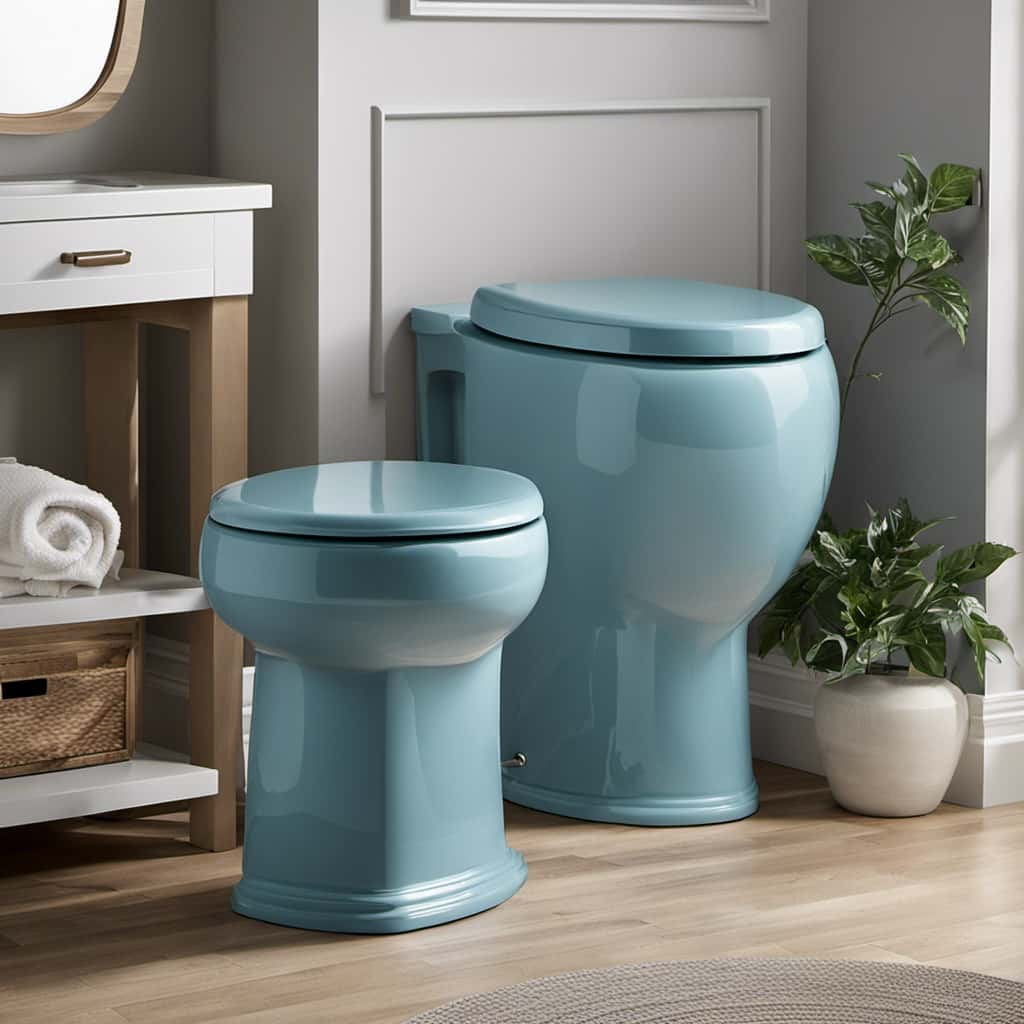
To address these concerns, it’s crucial for individuals to follow proper disposal methods, such as throwing wipes in the trash instead of flushing them. Furthermore, industry regulations and standards should be established to ensure that disposable wipes are clearly labeled with instructions for proper disposal. This would help minimize safety risks and reduce the environmental impact associated with these products.
Transitioning into the subsequent section about the need for standardized testing, it’s important to evaluate the effectiveness and environmental impact of disposable wipes through rigorous and consistent testing methods.
Need for Standardized Testing
To ensure the safety and environmental friendliness of disposable wipes, we must implement standardized testing methods and industry regulations. These measures are crucial in addressing the challenges posed by the use of disposable wipes and in providing consumers with reliable information.
Here are four reasons why standardized testing and industry regulations are necessary:
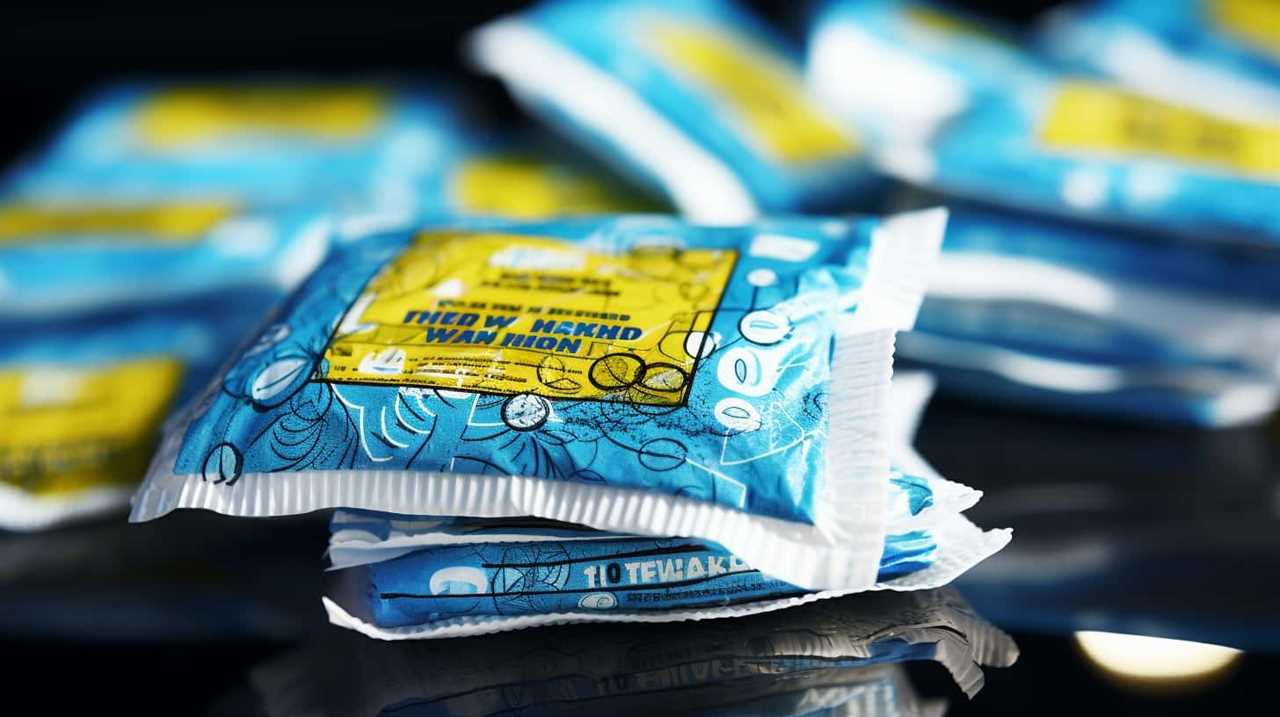
- Consistency: Standardized testing ensures that all wipes are tested using the same criteria, allowing for accurate comparisons between different brands and products.
- Safety: By implementing industry regulations, we can ensure that disposable wipes meet specific safety standards, minimizing the risk of harm to both users and the environment.
- Transparency: Standardized testing and industry regulations mandate the disclosure of relevant information, such as the presence of certain chemicals or the biodegradability of the wipes, enabling consumers to make informed choices.
- Accountability: Industry regulations hold manufacturers accountable for the claims they make about their products, promoting responsible practices and preventing misleading marketing tactics.
By implementing standardized testing and industry regulations, we can ensure the safety and environmental impact of disposable wipes, empowering consumers to make informed choices.
Now let’s move on to the next section, where we’ll explore the conclusion: making informed choices.
Conclusion: Making Informed Choices
Making informed choices about whether or not to flush disposable wipes is crucial for maintaining proper plumbing and sewer systems. Consumer education plays a vital role in ensuring responsible disposal practices.
It’s important to understand that despite some claims of flushability, most disposable wipes aren’t designed to break down in water like toilet paper. Flushing them can lead to clogs and blockages in pipes and sewer systems, causing expensive repairs and environmental damage.

To make an informed decision, consumers should consider alternative options such as using reusable wipes or disposing of them in the trash.
Frequently Asked Questions
Can Disposable Wipes Be Safely Flushed Down the Toilet?
Disposable wipes should not be flushed down the toilet. Proper disposal involves throwing them in the trash. For a more eco-friendly option, consider using biodegradable wipes, which are designed to break down more easily.
How Do Flushability Claims Affect the Use of Disposable Wipes?
When considering the flushability claims controversy surrounding disposable wipes, it is important to analyze how consumer behavior is affected. Our objective analysis reveals the potential consequences and challenges associated with flushing these wipes.
What Are the Risks Associated With Clogged Toilets and Sewer Blockages Caused by Flushing Wipes?
Flushing wipes poses risks of plumbing damage and can impact wastewater treatment facilities. Clogged toilets and sewer blockages are common consequences, which can be costly to repair and strain the infrastructure.
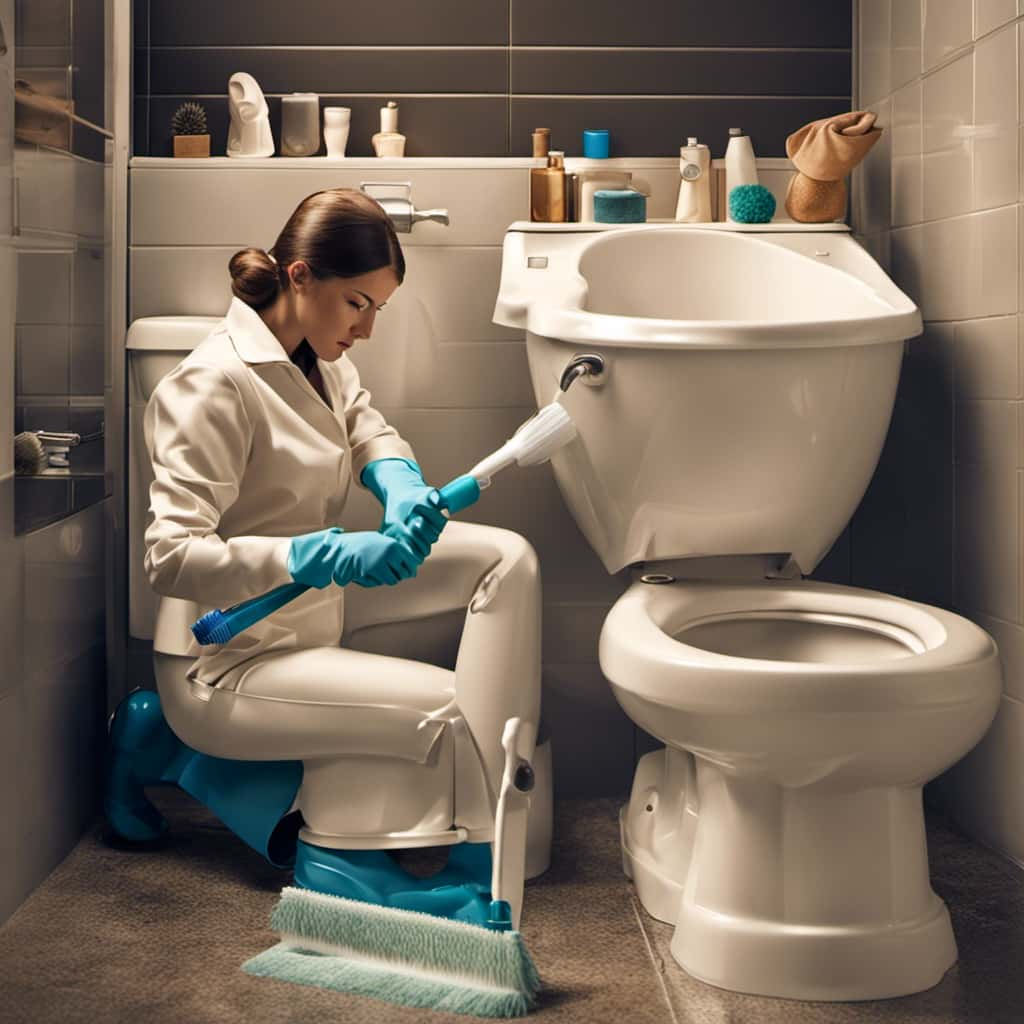
What Are the Environmental Consequences of Flushing Disposable Wipes?
The environmental impact of flushing disposable wipes includes clogging pipes and damaging wastewater treatment systems. It is important to consider the long-term consequences and explore alternative options to reduce this harmful practice.
Are There Any Alternative Methods for Disposing of Disposable Wipes Other Than Flushing Them?
When it comes to disposing of disposable wipes, there are alternative methods that are more eco-friendly. From composting to using biodegradable options, there are plenty of ways to keep the planet clean and happy.
Conclusion
In conclusion, it’s crucial for us to make informed choices when it comes to flushing disposable wipes. While they may offer convenience, their impact on plumbing systems and the environment can’t be ignored.
We need to be aware of the risks of clogged toilets and sewer blockages, as well as the challenges faced by municipal sewage treatment facilities. Only by understanding these consequences can we take steps to protect our plumbing and our planet.
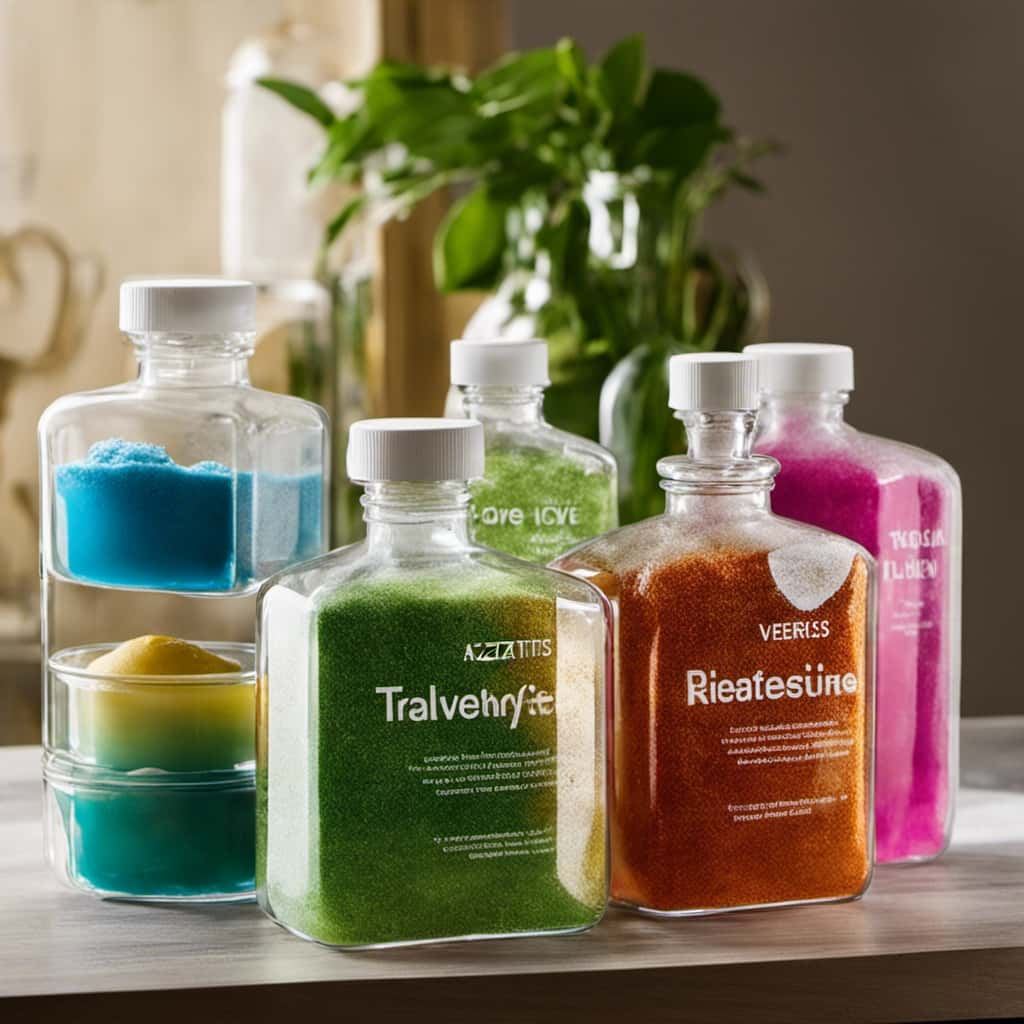
Remember, knowledge is power, and it’s time to wipe away the ignorance.



